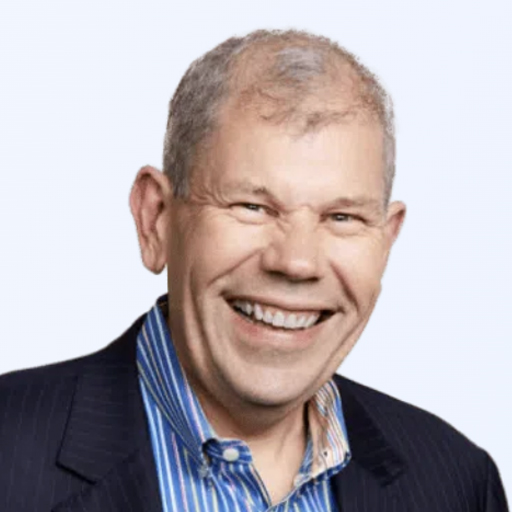Table of Contents
- Sound Friendly From the First Hello
- If They Jump Straight to Price — Use the Takeover Question
- Find Out How They Found You — The Source of Enquiry
- Start With The Big-Picture Questions
- Soften Questions to Build Trust
- Explain Your Value — Why Choose Our Clinic?
- Shift-Selling — Suggest a Better Fit
- Make Requests With a Reason
- Trial Close — A ‘Check’ In Based on Their Style
- Handle Any Objections With Empathetic Curiosity
- Ask for their Decision — Clearly and Calmly
- Seek Referrals After The Surgery In a Nice Way
- Want to Train Your Front Desk Team on These Phrases?
-
- Q: Why is the phone such an important part of a plastic surgery practice?
- Q: What is the main goal of a phone call with a new patient enquiry?
- Q: What are the top three skills every front desk team member needs on the phone?
- Q: Why do we need to smile when answering the phone?
- Q: How should I structure a call with a new patient enquiry?
- Q: What’s the difference between answering questions and selling on the phone?
- Q: What if a caller wants “just the cheapest price” and isn’t interested in more detail?
- Q: How can I avoid being rushed or flustered during busy call times?
- Q: How do I handle calls when the patient sounds nervous or embarrassed?
- Q: Should I ever give exact prices over the phone?
- Q: What’s the biggest mistake front desk staff make on the phone?
- Q: How can I practice phone sales skills without real patients?
- Q: What should I say when a caller only asks, “How much is breast augmentation?” and nothing else?
- Q: How do I avoid sounding “salesy” when asking questions?
- Q: How can I build trust quickly with new callers?
- Q: What if a patient asks me about something our clinic doesn’t offer?
- Q: How can I politely ask for their email or phone number without sounding pushy?
- Q: How do I know if the patient is ready to book a consultation?
- Q: What’s the best way to handle objections like “I need to think about it” or “That’s expensive”?
- Q: How can I explain our value without just listing features?
- Q: When is the right time to ask for a patient referral?
- Q: What if I get nervous and forget my phrases during a call?
- Q: How do I handle a caller who is rude, rushed, or dismissive?
- Q: Why do these Superstar Questions work better than just answering directly?
- Further Reading about Phone Questions and Phrases to Get More Patients
Superstar Phone Questions and Phrases for Plastic Surgery Inbound Enquiries
Dave’s Story
My first business venture was a venue for weddings. When I first started out in the catering business, I was scrambling. Like most people in a new service business, I needed results — quickly. I tried everything: signage, marketing, brochures and worked 7 days a week. But none of those things made any real difference.
It was just one simple question. A Superstar Question that made a huge difference. It was a response to enquiry call asking about our PRICE.
This one phrase helped me take CONTROL of inbound conversations, sound more confident on the phone, and connect more deeply with potential customers. As I had discovered, whoever asks the questions controls the conversation and the outcome.
That one question helped me make my first wedding venue a roaring success.
It was just 15 words –
“Just before I answer that, do you mind if I ask a few quick questions?”
Since then, I’ve been on a mission to collect more of these high-impact gems — what I now call “Superstar Questions” — words and phrases that work, especially in medical and service industries where trust, tone, and timing matter most.
These phrases are perfect for patient coordinators, front desk teams, and anyone who speaks with aesthetic, medspa, cosmetic and plastic surgery patients in a medical clinic.
If you answer the phone, handle new enquiries, or book consultations with surgeons, then these questions and phrases are designed for you.
Sound Friendly From the First Hello
Most callers decide within a few seconds whether you sound helpful or not. Set a positive tone instantly:
“Thanks for calling [Clinic Name] – This is [Your Name]”
Say it with a smile in your voice and an upbeat tone. It’s your first impression — make it count.
Most people don’t catch the whole phrase — they mainly remember the last word. So always say your name LAST.
Please avoid using the word “Speaking” as the last word.
If you tell them your name, there is a much higher chance of them giving you their name at the start of the call.
You can then use their name to build rapport and relationship rapidly.
If They Jump Straight to Price — Use the Takeover Question
People often ask, “How much is it?” before you’ve had a chance to understand their needs.
Here’s how to take back control and guide the call:
“Just before I answer that – do you mind if I ask a few quick questions?”
“So what you’re looking for is [repeat their request]. I’ll just have to ask a few quick questions first.”
This keeps the conversation flowing and gives you vital background and context before discussing costs.
Find Out How They Found You — The Source of Enquiry
Knowing how patients hear about your practice helps with marketing and can create a warmer connection if you find a link:
“Have you visited our clinic before?”
“Do you mind if I ask how you found out about us?”
These questions also help identify loyal referrers and repeat patients.
Start With The Big-Picture Questions
To really understand what they’re after, start broad:
“What procedure are you considering?”
“What results are you hoping for?”
“Tell me more…”
These open-ended questions uncover needs, even if the caller isn’t entirely sure what they want.
Soften Questions to Build Trust
Tone matters. Use gentle question openers to make patients feel more comfortable:
“Do you mind if I ask…”
“Could I just ask…”
“Would it be alright if I ask…”
Remember – this feels more like a conversation — not an interrogation.
Explain Your Value — Why Choose Our Clinic?
Patients want to know why they should choose your surgeon and team. Try:
“What we do differently is…”
“What’s great about our clinic is…”
This helps you highlight your strengths — experience, care, safety, and outcomes.
Shift-Selling — Suggest a Better Fit
Sometimes what they ask for isn’t quite right. You can guide them:
“By the way, have you considered [alternative option] because [reason]?”
This shows care and expertise, not pushiness — and patients often appreciate the guidance.
Make Requests With a Reason
If you need contact details, always add context:
“Could I get your email address so we can send you information about your consultation?”
Use connectors like “because” or “so that.” Giving a reason increases the chance of a yes.
Trial Close — A ‘Check’ In Based on Their Style
Different types of people respond differently. Try matching their modality – Visual, Auditory or Kinsthetic:
“How does that look?”
“How does that sound?”
“How do you feel about that?”
“What do you think?”
Sprinkle these check-ins throughout the conversation, not just at the end.
Handle Any Objections With Empathetic Curiosity
Don’t argue. Instead, explore:
“Could you tell me more about that?”
“Could you share why you feel that way?”
You’ll often discover the real hesitation lies somewhere else.
Ask for their Decision — Clearly and Calmly
Don’t be shy — be confident:
“The next step is to book a consultation with Dr. [Name].”
“So would you like me to reserve an appointment for you now?”
Clarity reassures patients that they’re in good hands.
Seek Referrals After The Surgery In a Nice Way
Patients who’ve had a positive experience are usually happy to refer other patients — but you must ASK. The best moment to ask is when they’re happiest, such as after a great consultation appointment or review of their surgery.
Try:
“May I ask a you for a small favour – we love helping patients like you. Do you know anyone else who might be interested?”
“Our practice grows by referrals and we’d really like to help some of your friends or colleagues.”
A PAUSE works wonders here.
Want to Train Your Front Desk Team on These Phrases?
If you run a plastic surgery clinic and want your front desk team to sound more confident, convert more enquiries, and deliver a better patient experience — we can help!
These Superstar Questions and Phrases are just the start.
We can workshop them with your team, customise scripts for your services, and build confidence through practice.
Remember — Drills make Skills. Practice these phrases, and you’ll see more consultations booked and more happy patients.
Words matter — especially when you only have a few seconds to make an impression.
These Superstar Questions and Phrases aren’t just about selling — they’re about guiding, connecting, and helping patients say “yes” with confidence. Try just one of these today — and see what happens.
FAQs about Superstar Phone Questions and Phrases to book more Consultations
Q: Why is the phone such an important part of a plastic surgery practice?
The phone is often the very first point of contact between your clinic and a potential patient. In those first 30–60 seconds, callers decide if they trust you, if you sound competent, and if they want to take the next step. Every call is a sales opportunity, but it’s also a chance to build confidence, demonstrate care, and set the tone for the patient’s entire journey.
Q: What is the main goal of a phone call with a new patient enquiry?
The real goal isn’t to “give them the price” or answer every question on the spot. The goal is to build rapport and trust, understand their needs and hopes, and position the consultation as the natural next step. Always aim to get their details (email and phone number) so we can followup later.
Q: What are the top three skills every front desk team member needs on the phone?
- Listening actively, questioning gently, and closing clearly. These three skills allow you to guide the conversation, uncover needs, and finish with a clear action like booking a consultation.
Q: Why do we need to smile when answering the phone?
- Smiling changes your tone of voice. Patients can’t see you, but they can hear warmth, energy, and positivity. It makes you sound more approachable and trustworthy. Place a small mirror in front of you or use a smiley face sticker when you are on the phone.
Q: How should I structure a call with a new patient enquiry?
- Think of it as a simple 5-step flow: Warm greeting, take control, discovery questions, explain value, and close with a clear next step.
Q: What’s the difference between answering questions and selling on the phone?
- Answering questions is reactive and leaves the caller in control. Selling is proactive — you guide the conversation, connect their needs to solutions, and position your clinic as the right choice.
Q: What if a caller wants “just the cheapest price” and isn’t interested in more detail?
- Acknowledge their request politely, then guide them back with the takeover question. If they only want a bargain, they may not be an ideal patient, but many simply don’t realise they need more context until you explain it.
Q: How can I avoid being rushed or flustered during busy call times?
- Stick to a simple framework and rely on your Superstar Phrases. Always answer warmly, ask at least two discovery questions, and end with a next step. Calm pacing builds trust, even if you’re busy.
Q: How do I handle calls when the patient sounds nervous or embarrassed?
- Use empathy and softening phrases like “Would it be alright if I ask…” Reassure them that many patients feel the same way and that you’ll guide them step by step.
Q: Should I ever give exact prices over the phone?
- Depending on your clinic policy, you can share price ranges, but always explain that exact pricing depends on the surgeon’s consultation and personalised assessment. Position the consultation as essential. Always start with the high price, then the low price then our mid prices ranges.
- “You could pay as high as $XXX or as low as $ X. We find most patients are around the $X to Y range.”
Q: What’s the biggest mistake front desk staff make on the phone?
- Jumping straight into answering their question without controlling the conversation, or failing to close with a clear next step. Both can cause you to lose the patient.
Q: How can I practice phone sales skills without real patients?
- You can do roleplay practice with ChatGPT (see phone sales training prompt) or your colleagues, review recorded calls if possible, and keep a cheat sheet of Superstar Phrases near the phone. Practice regularly — drills make skills.
Q: What should I say when a caller only asks, “How much is breast augmentation?” and nothing else?
- Use the takeover question. Instead of quoting a price right away, say:
“Just before I answer that, do you mind if I ask a few quick questions?”
This allows you to find out what results they’re hoping for, whether they’ve had surgery before, and what kind of experience they expect. Once you know more, you can guide them toward a consultation instead of leaving them with just a number.
Q: How do I avoid sounding “salesy” when asking questions?
- Tone is everything. Use gentle openers like:
“Do you mind if I ask…”
“Could I just ask…”
“Would it be alright if I ask…”
This makes the exchange feel natural, like a conversation, not an interrogation. Patients will feel cared for, not sold to.
Q: How can I build trust quickly with new callers?
- Start with warmth and clarity. Always answer with energy:
“Thanks for calling [Clinic Name], this is [Your Name].”
Say your name last so it sticks in their mind. Then listen carefully, repeat back their request, and show empathy with phrases like:
“So what you’re looking for is…” or “Tell me more about what you’re hoping to achieve.”
Q: What if a patient asks me about something our clinic doesn’t offer?
- This is a chance to show expertise and care. Use a shift-sell phrase:
“By the way, we don’t offer that, but have you considered [alternative option] because [reason]?” - “I’m sorry we don’t have that device/service, but we do have [alternative option] because [reason]”
For example:
“We don’t perform thread lifts here, but many patients looking for that outcome are actually better suited to a facelift consultation. Would you like me to explain why?”
Q: How can I politely ask for their email or phone number without sounding pushy?
- Always add a reason (A request with a reason gets a result.). Try:
“Could I get your email address so we can send you a consultation guide with all the details?”
“Can I have your mobile number so we can text you the appointment confirmation?”
When you give context, patients are far more willing to share their details.
Q: How do I know if the patient is ready to book a consultation?
- Use trial closes throughout the conversation. Ask small, non-threatening check questions like:
“How does that sound so far?”
“How do you feel about that option?”
“What do you think about booking an appointment to discuss it with Dr. [Name]?”
Their response will tell you how close they are to committing.
Q: What’s the best way to handle objections like “I need to think about it” or “That’s expensive”?
- Use curiosity and empathy. Instead of pushing back, say:
“Could you tell me more about that?”
“Can you share what you’re comparing it to?”
This helps uncover whether the issue is cost, timing, fear of surgery, or something else entirely. Often, the real concern isn’t money but confidence.
Q: How can I explain our value without just listing features?
- Frame it in patient-centred language. Instead of rattling off “experience, safety, outcomes,” say:
“What we do differently is provide extra follow-up care, so you’ll feel fully supported during recovery.”
“What’s great about our clinic is that Dr. [Name] has performed over [X] procedures, which means you’ll be in very experienced hands.”
Use “because” or “which means” to tie benefits back to patient peace of mind.
Q: When is the right time to ask for a patient referral?
- Timing is crucial. Ask when the patient is happiest — for example, after they’ve had a great consultation or when they’re thrilled with their surgical results.
You might say:
“We love helping patients like you. Do you know anyone who might be interested in a consultation with us?”
Leave a pause after asking. Silence often prompts them to think of someone.
Q: What if I get nervous and forget my phrases during a call?
- Keep a small cheat sheet or laminated card near your desk with the top 5 Superstar Phrases. Practice them until they feel natural. Roleplay with colleagues during team meetings. Remember — Drills make Skills. The more you practice, the more confident and automatic your responses will become.
Q: How do I handle a caller who is rude, rushed, or dismissive?
- Stay calm, friendly, and in control. Use the takeover question to slow things down:
“Just before I answer that, do you mind if I ask a few quick questions?”
If they’re truly impatient, acknowledge it:
“I can hear you’re short on time — would you like me to quickly book you a consultation so Dr. [Name] can answer everything in person?”
This balances empathy with professionalism.
Q: Why do these Superstar Questions work better than just answering directly?
Because they shift the focus from price to value, from transaction to connection. They allow you to:
- Control the conversation.
- Build trust in seconds.
- Position the consultation as the next natural step.
Most importantly, they create a better patient experience — and that leads to more bookings, higher satisfaction, and more referrals.
Further Reading about Phone Questions and Phrases to Get More Patients
-
- Read the Blog – How to have a Positive Mental Attitude
- Read the Blog – Book Summary – How to Win Friends and Influence People











